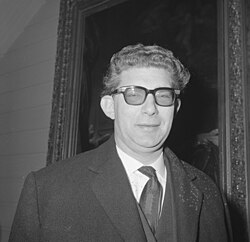| | First party | Second party | Third party |
|---|
| | | | | | Leader | Mark Eyskens | André Cools | Willy De Clercq |
|---|
| Party | CVP | PS | Open Vld |
|---|
| Leader since | Candidate for PM | 1978 | 1977 |
|---|
| Last election | 57 seats, 26.14% | 31 seats, 12.46% | 22 seats, 10.36% |
|---|
| Seats won | 43 | 35 | 28 |
|---|
| Seat change |  14 14 |  4 4 |  6 6 |
|---|
| Popular vote | 1,165,239 | 733,137 | 776,871 |
|---|
| Percentage | 19.34% | 12.17% | 12.89% |
|---|
| Swing |  6.80% 6.80% |  0.29% 0.29% |  2.53% 2.53% |
|---|
| | | Fourth party | Fifth party | Sixth party |
|---|
| | | PRL | | | Leader | Karel Van Miert | Jean Gol | Vic Anciaux |
|---|
| Party | sp.a | PRL | VU |
|---|
| Leader since | 1978 | 1979 | 1979 |
|---|
| Last election | 26 seats, 12.37% | 15 seats, 4.64% | 14 seats, 7.02% |
|---|
| Seats won | 26 | 24 | 20 |
|---|
| Seat change |  |  9 9 |  6 6 |
|---|
| Popular vote | 744,593 | 480,380 | 588,436 |
|---|
| Percentage | 12.36% | 7.97% | 9.77% |
|---|
| Swing |  0.01% 0.01% |  3.33% 3.33% |  2.75% 2.75% |
|---|
|
|









